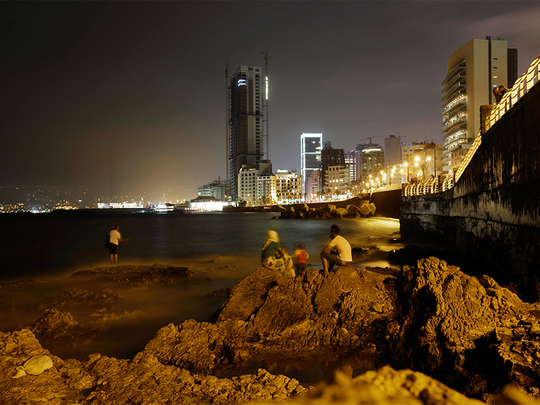
Dubai: Lebanon real estate’s loss could be Egypt’s gain as Gulf investors scour investment opportunities closer to home. (Or if they have surplus funds left over after all the asset deployment they have been making in London, other Western Europe cities and the US.)
“We currently see little or no new money deployed by GCC investors in Lebanon,” said Fadi Moussalli, Head of the International Capital Group at JLL Mena. “Actually Gulf investors have been net sellers in Lebanon in the past three years. Geopolitical tensions are responsible.”
There is clearly an erosion in appetite for Lebanon realty, and Beirut’s in particular. It’s famed ability to bounce back from the worst troughs — usually set off by external factors at its borders — does not hold potential investors in thrall any longer. (And the selling period is getting longer — one UAE based investor took the better part of a year and more to to sell off a four-year old villa outside Beirut. Even then, he had to take a 20 per cent cut on his asking price to get the buyer interested.) “The impact of the dull market is most visible in the luxury sector which tends to be oversupplied in the core areas of Beirut and in the high-end leisure and resort destinations,” said Moussalli. “A drop in values of 10-20 per cent has been observed.”
Moreover, Lebanon’s property prospects have also been hit by “perceptions”. The impression remains among overseas investors that prices had shot up to unsustainable levels at the high-end during an extended bull run.
“Prices have rallied so much (close to three times) during 2005-2011 that the overwhelming perception is that the upside [opportunities are] limited for the foreseeable future,” said Moussalli. (Whatever transactional activity is taking place in property is limited to the affordable category, and mostly involving first-time domestic buyers.)
Oil prices
For one UAE based investor, the time of reckoning in Lebanon is drawing near. “The Damac Tower is topped out and the handover is imminent,” said Niall McLoughlin, Senior Vice-President for Sales and Marketing at Damac Properties. (With a prime location in pricey Solidere, the 28-storey structure has cost upwards of $300 million (Dh1.1 billion) to build and fit-out, with the Versace label attached to the interiors.) As for Gulf investor chances in Egypt, there is decidedly a long term feel to it. “Large-scale development projects have been announced with GCC backers and I foresee more interest will come as weak oil prices may slow demand for real estate in the Gulf,” said Gaurav Shivpuri, Head of Investment Transactions at JLL Mena.
“The fundamentals in Egypt have been strong and with the return of political stability we are beginning to see interest. Having said that, the bid-ask spread when it comes to foreign buyers in Egypt may still take a few months to compress.”
Gulf investors could even be spoiled for choice — the many new “cities” that have been announced to de-clog Cairo and its immediate suburbs will create those opportunities for them. Even if only a handful of these actually come to fruition, that may still be good enough.











